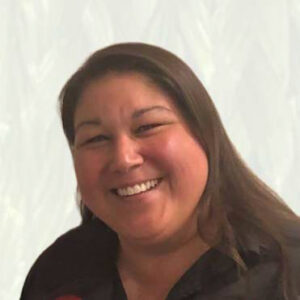by Maureen Strickland
Local Journalism Iniaitive Reporter
MANITOULIN—The sacred smell of burning sage wafts through the air while cards on the conference tables ask participants to “Catch the Trigger Before it Escalates.”
It is the morning of day two of a two-day gathering on Strengthening Spirit Impacted by Addictions and Mental Health sponsored by Noojmowin Teg Health Centre and facilitated by Stephanie Stephens.
Community members, frontline workers, counsellors, child and family workers and people living with mental health and addictions issues have been invited to the gathering. Those in attendance are from communities and organizations across Manitoulin Island and the North Shore.
Rob Wabegijig, addictions support worker at Noojmowin Teg is pleased with the turnout and the response. “There is a good mix between frontline workers and community members, it is especially important for new frontline workers and people not from here to understand the community,” said Mr. Wabegijig.
Addictions, particularly to opioids remains an on-going issue in the region with significant impacts says Mr. Wabegijig.
According to the Public Health Sudbury and Districts Community Drug Strategy opioid surveillance data, in 2022 Sudbury and Manitoulin Districts had 2.8 times the annualized rate of visits to emergency departments for opioid overdoses than Ontario overall. The annualized mortality rate in 2022 from opioid related overdoses in Sudbury and Manitoulin Districts was three times the rate in Ontario overall.
Ms. Stephens leads the gathering over two days on a journey to understand the impact of colonialism on mental health and addictions in first nations communities.

Ms. Stephens is Anishinaabe, Bear Clan and a member of Garden River First Nation. She is a social worker and an anti-colonial, critical thinker who believes in the old Anishinaabe ways of knowing, being, understanding and doing in the world.
Ms. Stephens offers a condensed look at colonial history from first contact through the lens of Windegokaan (a protective spirit) and highlights the traumas over the centuries that lead to disconnection from spirit.
From the introduction of guns in the 1500s to Christian indoctrination in the 1600s, then the exploitation by the fur traders in the 1700s, the beginning of residential schools in the 1800s, the ‘60s scoop in the 1900s and the first steps in the 2000s towards truth and reconciliation after 10 generations of the trauma the list is long, painful and powerful.
Ms. Stephens refers often to the negative ‘W spirit’ or ‘W virus’ as being at play in colonialism. “I cannot say the W in the W-virus because it will call the spirit in,” said Ms. Stephens. This W-virus is about greed, extraction and exploitation.
Ms. Stephens describes the history she tells as a meta-narrative. The Oxford dictionary defines meta-narrative as “an overarching account or interpretation of events and circumstances that provides a pattern or structure for people’s beliefs and gives meaning to their experiences.”
Those in attendance are asked to reflect and discuss at their tables how they feel about this history of trauma laid bare.
Angry, sad, overwhelmed, confused are some of the feelings shared. The “Catch the Trigger” card makes sense and offers suggestions like taking slow deep breaths, inhaling sage smudge and connecting to your support person should you be triggered.
There is lightness and humour too.
Ms. Stephens shared traditional stories to help awaken the spirit. The “Little Winged Startlers” tells how Nanabush, the trickster, defecates on a group of baby grouse and then the mother grouse scares Nanabush off a cliff. The moral here is to not cause harm and to have good relations.
A group of frontline workers from the low barrier Mental Health and Addictions Shelter in M’Chigeeng see the value in this gathering. Shelter worker Morgan McGraw explains that “this helps to understand the emotional pain that drives some people to addiction.”
The importance of understanding the generational emotional pain in First Nations communities and individuals living with mental health and addictions issue is a main takeaway.
Mr. Wabegijig hopes that frontline workers and those living with mental health and addictions leave with an understanding of the importance of kindness, kindness to yourself and others. He believes “the opposite of addiction is connection and that those who are connected, with spirit and their community, may not be as prone to addiction.”
This is echoed by Ms. Stephens with the saying, “connection is the correction.”
Another traditional story, the Shut Eye Dance, involves Nanabush luring a group of ducks to their death during a dance with their eyes shut. The ducks are saved by one duck who knows something is wrong, opens its eyes and listens to its gut. Nanabush gives the duck red eyes for life as punishment for opening its eyes. This duck becomes the loon whose call we know so well—a call that often speaks to us in the wilderness.
“Whose song and dance are you doing?” asked Ms. Stephens, “Are you a duck or are you a loon that is in touch with spirit?”
Ms. Stephens says to connect to spirit “get out of your head, the colonial world is set up to live in your head. Connect to your heart and know where you are from.”
It is this reclaiming of identity and understanding the roots of emotional pain that can lead to connection says Ms. Stephens.
The frontline workers from M’Chigeeng wish there were more community members from across Manitoulin at the gathering, learning about these deep roots of intergenerational trauma, the resulting disconnection to spirit and the understanding of this that can lead to empathy.
“I’d like to bring this back,” says Mr. Wabegijig, “there has been a very positive response.”
For those living with mental health issues and addictions Mr. Wabegijig wants you to know, “you are not alone, there are people to help and support you.”
Contact Rob Wabegijig, addictions support worker, Noojmowin-Teg at 705-368-0083 or rob.wabegijig@noojmowin-teg.ca